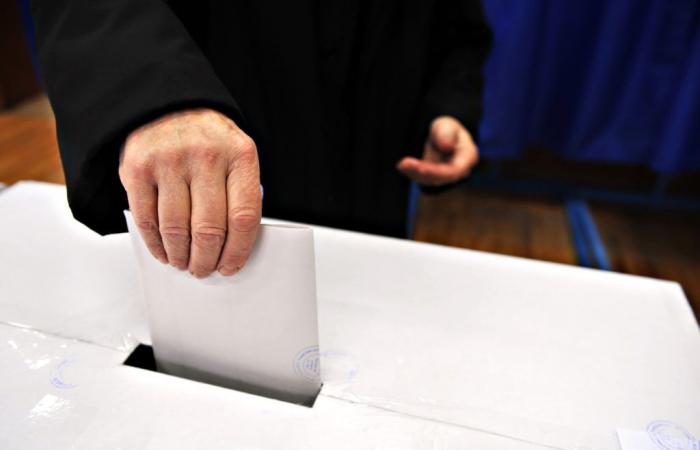A new study reveals that almost half of American voters believe that content generated by artificial intelligence (AI) will have a negative impact on the outcome of the presidential race in November (43%). The survey of 2,000 registered voters reveals not only that people are increasingly pessimistic about a political digital universe full of deepfakes, but also that people cannot distinguish between AI-generated content and human-created content. Respondents were asked to differentiate between AI-generated images and human-created images, and most misidentified all AI images as human-created. On average, only a third of respondents (33%) were able to correctly identify AI-generated images. Comparisons between the AI audio and the human voice were no more promising. When an audio clip with an AI voice was played, a fifth of respondents (20%) were unsure whether it was human or AI, while 41% believed the AI voice was authentically human.
Commissioned by Yubico, in partnership with Defending Digital Campaigns, and conducted by OnePoll, the research finds that politics is the number one sector that has been negatively affected by deepfakes (AI-generated content intended to deceive), according to interviewed. More than three-quarters (78%) are concerned that AI-generated content will be used to impersonate political candidates and spread misinformation, and 45% say they are “very concerned” about this issue. Almost half (49%) of respondents tend to question whether political videos, interviews and online advertisements are real or whether they are deepfake content. Another seven in ten are concerned about the loss of authentic and truthful political information among online misinformation. “In addition to the threat of AI and deep fakes that spread misinformation, 85% of respondents do not have a high level of confidence that political campaigns effectively protect their personal information,” said spokesman David Treece, deputy vice president. president of solutions architecture at Yubico, in a statement. “This can have detrimental effects on a campaign, as a loss of trust in a campaign can mean that voters avoid engaging in the electoral process, from withholding donations to the point of not voting for the candidate. It is imperative that candidates take appropriate steps to protect their campaign and, more importantly, to build trust with voters by adopting modern cybersecurity practices such as multi-factor authentication.”
Respondents say their top cybersecurity concerns during the 2024 election season were the possibility of a politician they support being successfully hacked, spreading false information and opinions (24%) and that political campaigns do not took cybersecurity seriously enough in general (24%). To remedy this situation, registered voters would like campaigns and candidates to take precautions to prevent their websites from being hacked (42%), use strong security measures such as multi-factor authentication on their accounts (41%), and create protocols and cybersecurity officials. Only 15 percent have a high level of confidence that political campaigns effectively protect the personal information they collect. In fact, more than two in five respondents (43%) say they have shared personal information with a company or organization that has been hacked.
Of the 60 percent of registered voters who donated to a political campaign, 42 percent did not complete an online donation transaction due to concerns about its security and how their personal information would be handled. Almost a third (30%) doubt that campaigns will meet their expectations of implementing cybersecurity standards to protect their personal information. Public perception in this area had a major influence on election results: 36 percent of respondents say their opinion of a candidate would change if the candidate suffered a cybersecurity incident, such as their email being hacked. Forty-two percent of those who have donated to a campaign say the likelihood of donating again would change if the campaign was hacked, and 30 percent report it would even change the likelihood of a candidate receiving their vote.
“Political campaigns are targets of bad actors, including nation states, cybercriminals and hacktivists. Given the high stakes in this election year, the stakes are even higher,” says spokesperson Michael Kaiser, president and CEO of Defending Digital Campaigns. “The entire campaign team – from the candidate to the volunteers – must understand that they are targets and protect themselves and the campaign with the appropriate cybersecurity tools and technology. Any breach could derail an entire campaign and consume precious time as the clock ticks toward election day. As this important research shows, voters have high expectations about how campaigns protect their information.”
On March 14, several online platforms, including TikTok, Facebook, Instagram, Twitter (now called X), Google and YouTube, received notifications to explain the measures they are taking to combat “deepfakes”, a technique that allows manipulation videos changing people’s faces, mapping their facial features and synchronizing lip movements. This action comes due to the European Union’s concern about the potential use of fake images and audio to influence elections, as these will take place across the EU within three months.
This requirement reflects the EU’s commitment to the serious implementation of the new Digital Services Law. The European Commissioner for the Internal Market, Thierry Breton, assured that the law is in full operation and that the teams are fully committed to this end. The EU Digital Services Law, considered a global pioneer for digital platforms, came into force on August 25 last year. The objectives of this law include creating a safe environment for users, reducing exposure to illegal content, promoting platform transparency and fostering competitiveness and innovation in the European single market.
This action by the European Commission comes after Meta (formerly Facebook) announced that it will restrict access to political content on Instagram and Threads, reducing the visibility of posts about elections or governments. Additionally, TikTok is also taking steps to combat misinformation during election periods by restricting paid promotion of political content and establishing a voter center, as well as launching information literacy education campaigns.





